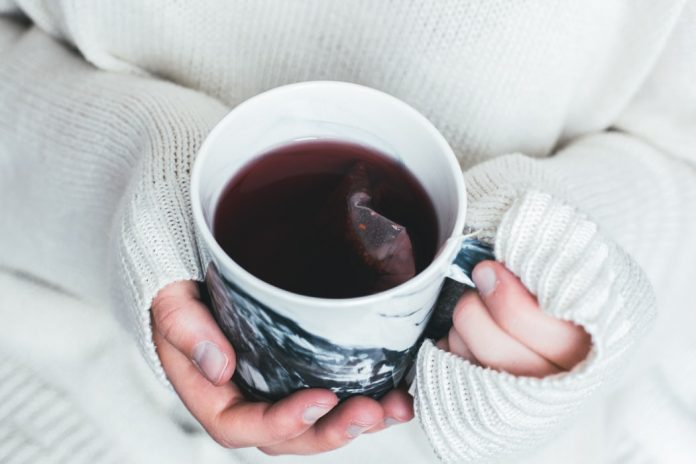Over the years, drinking tea increasingly became the solution to many problems. If one had a headache, felt queasy, or anxious, these were all reasons to drink tea. If you needed to stay awake at night or get a boost of energy in the morning, these were reasons to drink coffee.
According to WebMD, different studies have shown reduced odds of breast, prostate, and skin cancer for drinkers. Researchers still attempt to understand the accurate dynamics of how this occurs.
Green tea is rich in antioxidant-like compounds that can minimize cell deterioration and improve the immunity system and polyphenols, which have been shown to reduce cholesterol and blood pressure. It may also assist in staving off Alzheimer’s disease via a polyphenol known as EGCG, which stops the growth of plaques associated with this brain-damaging disease.
So, what are the odds when carrying out a comparative analysis of coffee vs. tea?
Benefits of Drinking coffee
The beverage has been researched for over a hundred years and has been seen to have several health benefits (as well as quite a few risks). The chance of Alzheimer’s disease, Type 2 Diabetes, etc., could decrease due to your regular cup. It is also high in antioxidants.
This beverage is a very non-culpable means of improving your wellbeing. It consists of only two calories present in an 8-ounce cup (excluding milk or sugar) and no fat. But avoid overdoing it as more than two or three cups a day can raise your blood pressure, mostly those with elevated or borderline readings.
6 Reasons to Drink Tea Over Coffee
Green tea is so healthy for you that some researchers are even excited about it, and you can conveniently buy it from an online tea and coffee shop. Elliott Miller, a National Institute of Health critical care medicine specialist, https://www.webmd.com/health-insurance/insurance-doctor-types#1, carried out some research on the benefits of tea over coffee.
In more than 6,800 individuals from differing backgrounds countrywide, Miller and his colleagues studied heart illness symptoms. Approximately 75% drank coffee, and about 40% documented drinking tea. The daily intake of more than one cup was related to less calcareous growth in the arteries that supply the heart with blood. This progression can result in heart disease.
Other benefits include:
#1: Circumvent the Caffeine Fears
Although a leaf may contain more caffeine in comparison to a coffee bean, the variations in brewing methodologies mean a cup of coffee has much more caffeine than a cup of tea.
#2: Body Hydration
A cup is great for replenishing your fluid consumption and hydrating your body. While coffee may provide similarly, tea usually has the extra advantage of being pure water with an excellent scent and flavor. Ultimately, it means it is much more beneficial to drink a cup, whether hot or cold since it can replace fluids lost due to sweat. It also means that tea is brilliant for your skin and moisturizes it faster, so go on, boil that water, drop in tea bags and improve your skin.
#3: Stress Reduction
Loose leaf tea helps in stress reduction. While the physical cause of this remains unclear or, at best obscure, a hot cup is well known to be used during a bonding session and as a refreshment, which explains why the beverage is so profoundly embodied in certain cultures as part of their customs. The beverage has also been discovered, or rather green tea has been found to act as an anti-depressant. It will help to improve your morale by drinking a cup next time you feel low.
#4: Bone Protection
Recent Australian research showed that people drinking a cup daily had healthier bones. Due to the high levels of catechin, they were less likely to experience osteoporosis. Furthermore, a few years ago, another study showed that drinking led to healthy bone development.
#5: Improve Concentration
Although we sometimes look to coffee to enhance energy levels, high doses of caffeine can conflict with concentration during the day. The high octane boost of energy from caffeine will make it tough to sit still or work with precision. Besides having fewer caffeine levels, a hot cup also incorporates L-theanine, an amino acid found to facilitate relaxation and sleep without drowsiness. The unusual balance of caffeine and L-theanine present also aids in meditation and has done so throughout history.
#6: Wide Variety of Natural Flavors
The manufacturing steps used to convert coffee from beans to finished produce possibly leaves less space for flavor differences though coffee may have several flavor profiles. Although the roasting methods allow tea and coffee to produce a range of flavors, teas can differ drastically based on harvest date and oxidation levels.
Oxidation is the first step in the tea production process, which has the largest effect on the final product, and which produces the distinction between all major teas, from fine greens to enthusiastic black teas. To better experience these distinct flavors, how about you order tea online. The site has a wide variety that will leave you spoilt for choice.
In Summary
While caffeine content can differ according to the serving portion, brewing duration, or preparation process, coffee can comfortably consist of twice as much caffeine in an equivalent tea serving. Also, while frequent coffee consumption can cause tooth discoloration, tea provides fluoride that is good for your teeth but ensure your consumption is moderate. If you want to get rid of staining caused by coffee, don’t hesitate to polish your teeth with the Cosmetic dentist in Roseville now. All these factors make tea a more comfortable choice when considering coffee vs. tea. Plus, all the additional health benefits that tea extends are multiple.








































